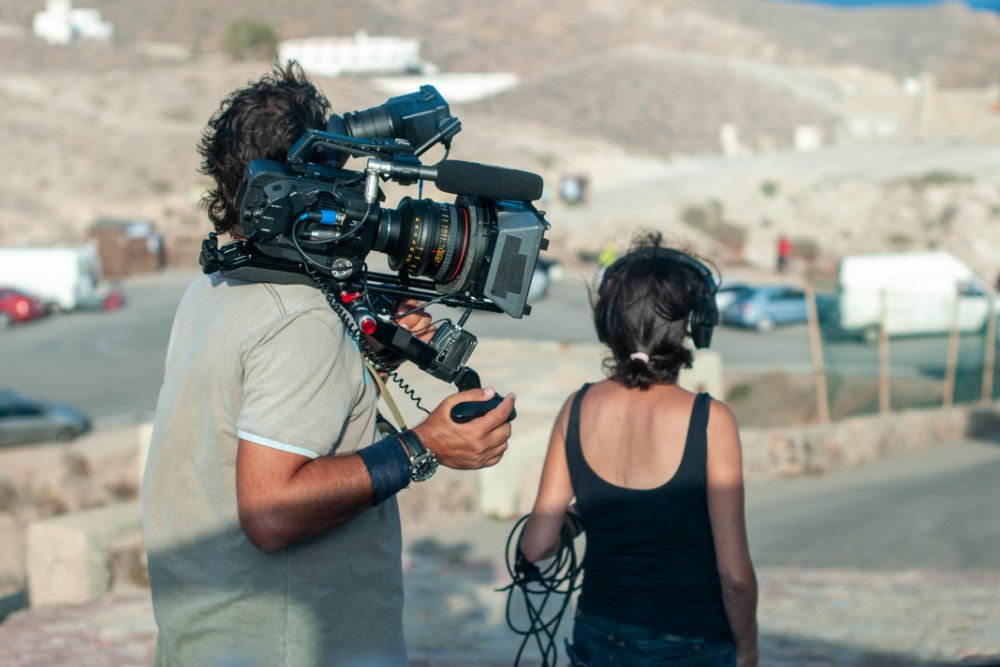Millions More to Help Journalists to "Hold the Powerful Accountable"
/Has the election of Donald Trump been "good" for nonprofit journalism? You better believe it. As we keep reporting, his rise has generated an avalanche of new donations, large and small, for nonprofit news sites and compelled some foundations to recalibrate their grantmaking to support investigative reporting for the first time.
Of course, there's an irony in these new boom times for public interest journalism, since this "good news" is in response to a set of very bad circumstances. Proponents of a free press are seriously nervous right now, and for legitimate reasons, since the executive branch is headed by a man who's said that the media “is the enemy of the American people." Meanwhile, the familiar financial challenges faced by news organizations haven't gone away. These limit the capacity of the Fourth Estate to hold public officials accountable at a moment of multiplying scandals and conflicts of interest.
So it's no wonder that for all the new giving toward nonprofit media, more money keeps flowing. If we can use grantmaking as metric for gauging urgency, this is an incredibly high stakes moment in the history of American journalism.
To see this dynamic playing out in real time, we turn to the recent announcement from eBay founder and philanthropist Pierre Omidyar's First Look Media, which is expanding its Press Freedom Defense Fund (PFDF).
Originally launched in July 2014 as the Press Freedom Litigation Fund, the re-launched fund supports journalists, filmmakers and news organizations pursuing legal fights in which "substantial public interest, freedom of the press, or related human and civil rights are at stake."
In response to what it sees as increasing threats to journalistic integrity, independence and access, the PFDF is boosting its funding commitments to $6 million.
Support for journalists facing legal attacks is a critical but often overlooked component of a robust nonprofit media infrastructure. All of the high-minded intentions of today's worried media funders—including the Knight Foundation, Craig Newmark, Ford, and others (including newcomers like the Heising-Simons and Barr foundations)—will be for naught if intrepid journalists are stymied by legal challenges and fees. Powerful people have a tendency to hire powerful attorneys, and Trump himself has a track record of trying to squelch criticism through lawsuits. His lawyer famously threatened to sue the New York Times after it published allegations against Trump of sexual assault last fall.
But as we often point out, we live in an age when the wealthy come in all stripes, and the Trump era has pitted billionaire against billionaire as never before. Some may be intent on suppressing dissent, while others are keen to foster it. Pierre Omidyar, with a net worth of nearly $9 billion, is foremost among super-rich donors moving to amplify probing journalism since Trump's election. These efforts build on a foundation he's built over recent years to expand critical media and defend democracy, particularly by bankrolling First Look Media. This outfit had a rocky start a few years back, and Omidyar got quite a bit of negative press for the problems at First Look. Lately, though, his big move into investigative journalism has come to look ever more prescient.
Putting up more money to defend media from legal attacks is an obvious move, given the current political climate. Commenting on PFDF's expansion, First Look Media President Michael Bloom said, "It’s our goal to continue offering this legal support to fearless journalists and others whose credibility and independence are threatened because of their crucial work in holding the powerful accountable."
Omidyar and First Look Media aren't alone in addressing obstacles that keep journalists from holding the powerful accountable.
Back in January, we looked at a few of the over 300 "Supporters of Free Press" helping to fund the Committee to Protect Journalists (CPJ). The list includes familiar names like the Ford and Knight Foundations as well as individuals like Morton and Jane Blaustein and Marty and Dorothy Silverman. The Omidyar Network, meanwhile, gifted $2.1 million toward CPJ's mission to keep journalists alive and out of jail in authoritarian countries.
That piece also noted that back in 2016, a CPJ board member labeled Trump an "unprecedented" threat to press freedoms after the candidate swore that once in office, he would move to eliminate libel laws that shield reporters from lawsuits. The passage of time suggests this wasn't misplaced hyperbole—CNN recently reported that Trump previously pressed James Comey to imprison journalists who receive and publish leaks.
Legal resources are needed on a variety of fronts to help the media do its job properly. First Look says that previous grants through the PFDF have supported media outlets "facing denials of Freedom of Information Act requests; motions to quash subpoenas seeking source information or journalistic material; defamation cases where the underlying report concerns a matter of public interest; access cases to closed proceedings or sealed documents; and amicus efforts in support of press freedom."
First Look Media is also partnering with the Reporters Committee for Freedom of the Press (RCFP) to evaluate requests for support from the fund.
Overall, it's been a busy spring for Omidyar and his network of organizations. Back in March, the Omidyar Network provided seed funding for an Anti-Defamation League center in Silicon Valley to help digital companies find ways to fight online hate. That same month, First Look and the Democracy Fund announced $12 million in grants to the Center for Investigative Reporting, the Center for Public Integrity, and ProPublica. In April, the Omidyar Network announced a massive $100 million commitment to tackle some of the root causes of the "global trust deficit."
We don't expect the 49-year-old Omidyar or his allies to slow down anytime soon. Omidyar's hyperactive Twitter feed reveals that, like so many Americans, he's burning with anger about the Trump phenomenon (Today he tweeted: "Steve Bannon is insane. He has no business being anywhere near the White House.")
Of course, the difference between Omidyar and the rest of us in a froth is that he has billions of dollars and an entire infrastructure for deploying that money to influence public debates.
In First Look Media's press release on PFDF's expansion, it refers to ongoing efforts, but "with more announcements planned."
So stay tuned, people.







































